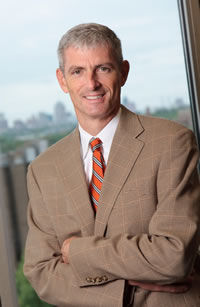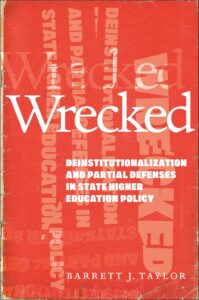
Wrecked by Barrett J. Taylor
The Havens Wright Center for Social Justice is sponsoring an online event featuring University of North Texas Counseling & Higher Education Professor Barrett J. Taylor. Taylor will discuss his most recent book, Wrecked: State Politics and the Deinstitutionalization of Public Higher Education, via Zoom at noon, Thursday, February 29. Pre-registration is required to attend.
From the publisher:
Higher education is a central institution in U.S. democracy. In the 2010s, however, many states that spent previous decades building up their higher education systems began to tear them down.
Growing hostility toward higher education reflected changing social forces that remade the politics of U.S. higher education. The political Right became increasingly reliant on angry white voters as higher education became more racially diverse. The Republican party became more closely connected to extremely wealthy donors as higher education became more costly.
In Wrecked, Barrett J. Taylor shows how these social changes set a collision course for the Right and higher education. These attacks fed a policy agenda of deinstitutionalization, which encompassed stark divestment from higher education but was primarily characterized by an attack on the institution’s social foundation of public trust.
In response to these attacks, higher education officials have offered a series of partial defenses that helped higher education to cope in the short-term but did nothing to defend the institution itself against the long-term threat of declining public trust. The failure to address underlying issues of mistrust allowed conflict to escalate to the point at which many states are now wrecking their public higher education systems.
Wrecked offers a unique and compelling perspective linking higher education policymaking to broader social and political forces acting in the twenty-first century.

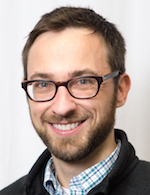
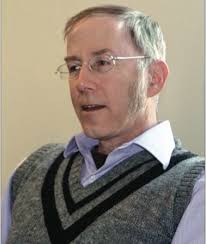
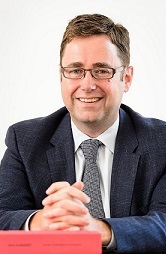
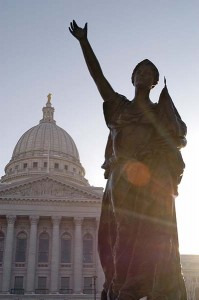 PROFS will host a forum to discuss Governor Scott Walker’s
PROFS will host a forum to discuss Governor Scott Walker’s  The University of Wisconsin System Board of Regents
The University of Wisconsin System Board of Regents 
 Chancellor Rebecca Blank
Chancellor Rebecca Blank 